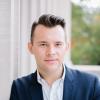Members of the International Theological Commission, who are appointed by the pope and advise the Dicastery for the Doctrine of the Faith, released the document, "Jesus Christ, Son of God, Savior: 1700th Anniversary of the Ecumenical Council of Nicaea (325-2025)."
